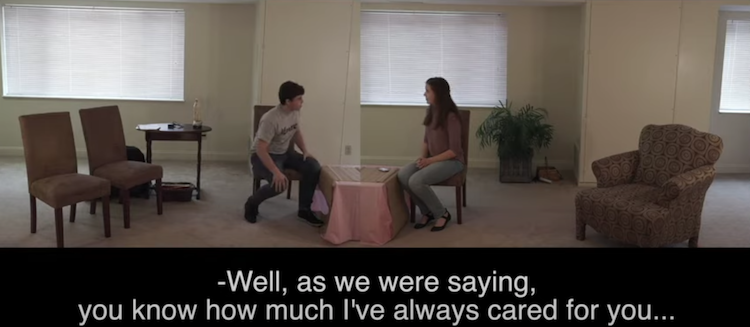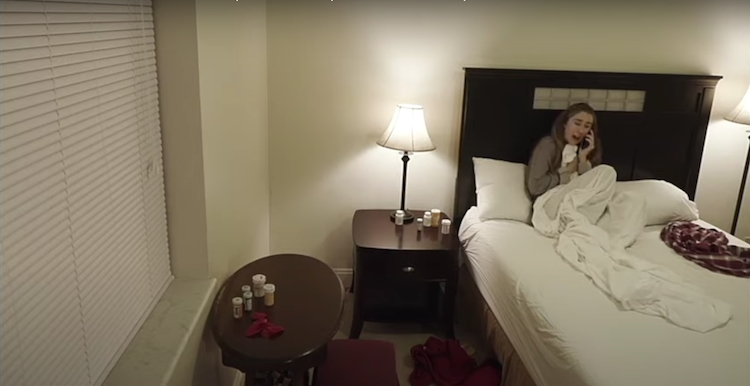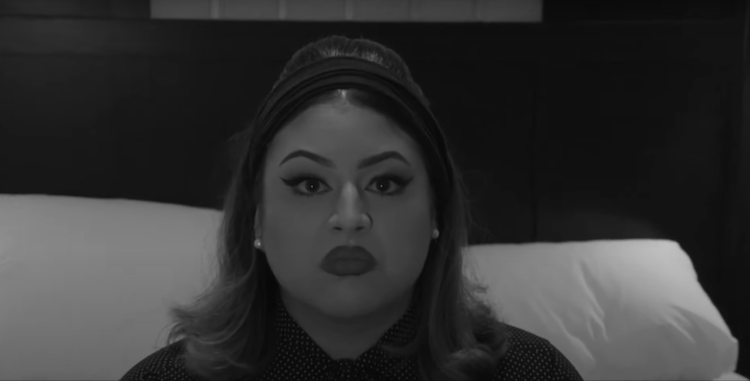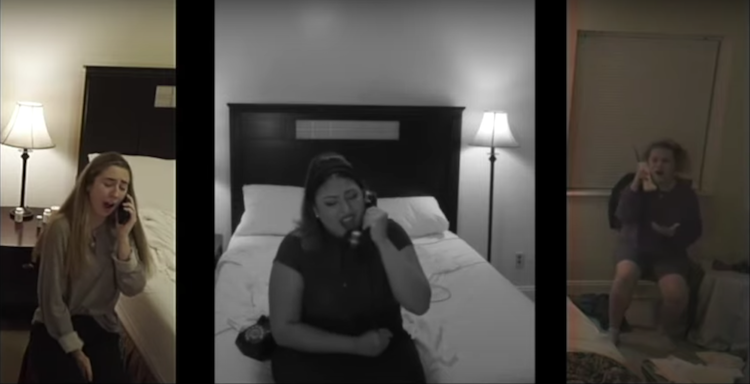by Jarrett Hoffman
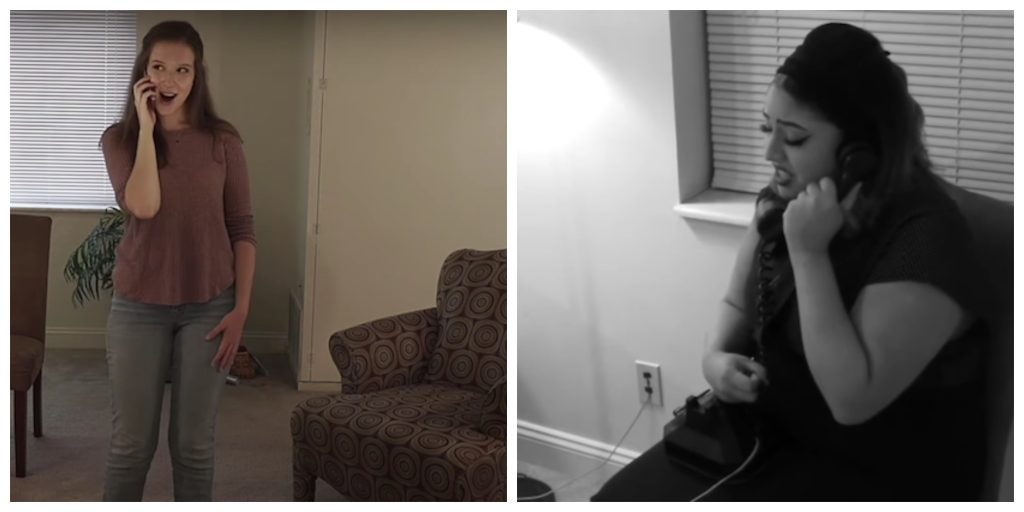
That was the case with Oberlin Opera Theater’s pre-recorded double-bill of Gian Carlo Menotti’s comedy The Telephone and Francis Poulenc’s tragedy La voix humaine, which brought together impressive performances with sometimes inventive, sometimes puzzling decisions from director Jason Aaron Goldberg. The production, which premiered on November 6 on the Oberlin Stage Left series, remains available to watch through November 13.
In The Telephone, Ben (Jared Cohen) struggles to propose to his girlfriend Lucy (Mae Alice Harrell) as she’s distracted by phone calls during the hour before he has to leave town. In this production, set in 2004 in Elyria, he’s about to be deployed to Iraq.
Only a few seconds in, one of the COVID-necessitated innovations made itself clear: a split screen separated Cohen on the left and Harrell on the right. The implication was that each performer was filmed separately, without occupying that space at the same time. It took a moment to get used to how the two halves of the screen didn’t quite line up in the middle, but it was a clever move, and Cohen and Harrell were convincing in their interactions.
Also recorded separately for both productions were audio (engineered by Paul Eachus and Andrew Tripp) and video (Morgan Elizabeth Carder), as noted during the pre-concert discussion. Sometimes, that worked perfectly. Other times, lips moved without the exaggeration of operatic singing, or were a little bit out of sync — minor distractions.
La voix humaine, based on the play of the same name by Jean Cocteau, has only a single character — a woman speaking to her former lover on the phone — making it a perfect fit for the pandemic, at least in practical terms. On the other hand, a one-person show is not perfect for a conservatory eager to give stage time to as many vocal students as possible. Likely for that reason, Oberlin Opera director Jonathon Field instructed Goldberg to cast four different sopranos. Goldberg divided up that one role skillfully based on musical motives and aspects of the plot, but the cuts from person to person took you out of the free-flowing phone call and its subtle emotional progressions.
Even once you accepted that aspect of the production, a few of the cuts were confusing, like the brief moments showing an empty area of the room. The visual flashback to the prior evening — even while the phone call continued — was an interesting choice from Goldberg, but it was strange that Jaclyn Hopping as Woman #3 did not appear on camera, even while she sang that section, which was instead acted out by Callie Iliff (Woman #2) and Daniela Machado (Woman #1).
One silver lining was the opportunity to hear and see different interpretations of the role — performances that matched well enough to stay in the same realm of character, while also offering their own subtleties. Iliff brought a quiet desperation to her high notes, and made good use of the set — wrapping herself in the blanket, clutching the pillow, and in the end tearing up old letters. Machado sang with an intense and gleaming high register, and her long, final gaze into the camera was powerful.
As Woman #4, Isabel Breakey paced the room in a way that was both realistic and visually engaging. Her face was expressive, and her voice had a nice, consistent clarity. And in her off-screen role, Hopping shone with an attractive, lilting vibrato, and brought life to some of the most emotionally wrenching passages of the work.
Speaking of the performances, Cohen and Harrell sang with a sweet and charming tone in The Telephone, even if range was a challenge at times. Their duets were stunning, including one in which each character processed their own anxieties privately. And in terms of chamber music, the split-screen unison at the end of La voix humaine was an added bonus of the production.
Both operas were sung in English with subtitles, and with orchestral scores boiled down to a single piano manned by music director Daniel Michalak. His playing was atmospheric and virtuosic, and perfectly matched the wide variety of moods across the two works, from bouncy to haunting and desperate. Adding to those moods in the Poulenc were the set — the many prescription bottles, the crumpled blanket, the clothes tossed haphazardly over a chair, and the messy pile of letters — and the creepy, security-camera-like angles of some of the shots.
As for this pairing of works, their contrasts of mood and music made for a satisfying double-bill, as did their common ground. We heard both lyrical and recitative-like singing. We witnessed two different relationships at very different points, and with their own particular power dynamics. And of course, there was the phone, dividing people up, and in some ways bringing them together — for the women in the Poulenc, a final but hopeless connection to her chéri.
One final and important touch, considering the serious subject matter of La voix humaine, was the inclusion of the National Suicide Prevention Lifeline phone number in the credits.
Published on ClevelandClassical.com November 10, 2020.
Click here for a printable copy of this article




